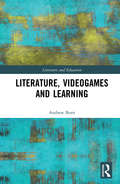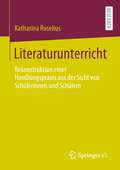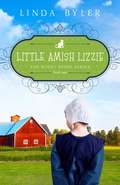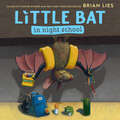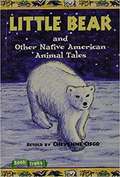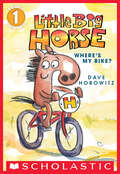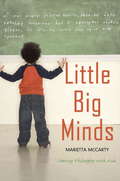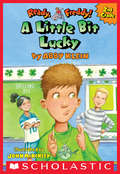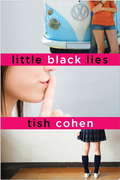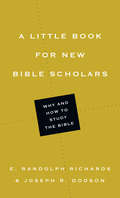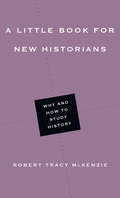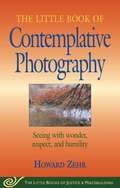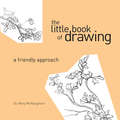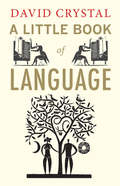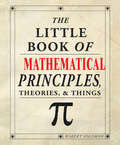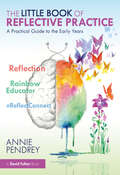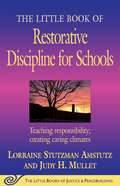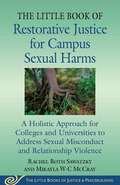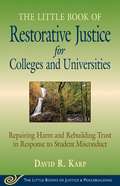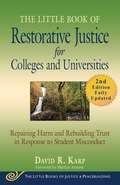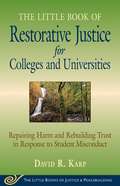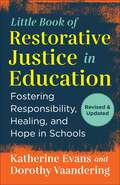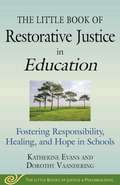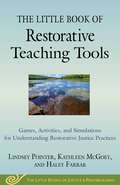- Table View
- List View
Literature, Videogames and Learning (Literature and Education)
by Andrew BurnThis innovative book explores links between literature and videogames, and how designing and playing games can transform our understanding of literature. It shows how studying literature through the lens of videogames can provide new insights into narrative and creative engagement with the text. The book sets out theories of narrative aesthetics and multimodality in literature and videogames, alongside models of literacy needed for such cultural and creative engagement. It goes on to examine game adaptations of children’s literature; and a series of videogames made by students based on Beowulf and Macbeth. In each case, the book considers ways in which the original text has been transformed by the process of game design, and what fresh light this casts on the literary narrative. It also considers what kind of learning, creative production, and cultural engagement is apparent in the game designs and emphasises the importance of treating games as a narrative medium in their own right. With a unique approach to the aesthetics of narrative in literature and videogames, the book will be of great interest to researchers, academics, and post-graduate students in the fields of literature, pedagogy, and game studies.
Literaturunterricht: Rekonstruktion einer Handlungspraxis aus der Sicht von Schülerinnen und Schülern
by Katharina RoseliusZiel der vorliegenden Studie ist es, im Rahmen der Institution Schule Möglichkeiten literarischer Bildung zu eruieren. Die Studie geht dabei schonungslos mit ihren eigenen Voraussetzungen um, entlarvt den Wunsch der Autorin nach eben diesen bildenden Momenten im Literaturunterricht. Gerade die empirisch evidente Verhinderung von Bildung im Literaturunterricht wird am Ende zum Horizont, vor dem sich literarische Bildung als Möglichkeit, als Nische, abzeichnet. Das Besondere aber jenseits dieser Möglichkeit ist der sezierende Blick, mit dem die Paradoxien der sozialen Praxis „Literaturunterricht“ freigelegt werden. Eine wesentliche, nicht zu überschätzende Leistung für die literaturdidaktische Forschung besteht im Wechsel der Beobachtungsform und der dadurch bedingten alternativen Gegenstandskonstitution von Text, Subjekt und Lektüre. Diese Verschiebung des Blickwinkels fordert den momentan dominierenden Kompetenzdiskurs mit seinem essentialistischen Text- und Lektürekonzept zur Selbstreflexion heraus.
Little Amish Lizzie (The Buggy Spoke Series #1)
by Linda BylerLizzie is a five-year-old Amish girl in Lancaster, Pennsylvania. She is spunky, sensitive, and not nearly as pious as her older sister Emma. Lizzie sometimes daydreams instead of praying when she bows her head before meals . . . but she figures God knows she’s grateful for the good food Mam puts on the table every night. Her wild spirit often gets her in trouble, though, and she wonders why she can’t be as sweet and kind as her goody-two-shoes big sister. Will she always be at odds with her own fiery spirit? Although Lizzie loves adventure, when her father’s business begins to struggle and she learns they’re moving to a new house in a different town, all she wants is to stay in the beloved home she knows with the little picket fence, the bubbling creek, and her favorite climbing trees. Through Linda Byler’s vivid descriptions of Amish life, you can walk with Lizzie as she adjusts to a new school, experience the terror of their awful buggy accident, laugh at her misadventures, and feel her struggle as she begins to question who she is as an individual in the midst of her tight knit Amish community. This is the first book in the Buggy Spoke series, which follows Lizzie through her tumultuous teenage years as she struggles to mesh her hot temper and willful ways with her Amish faith. These books are the prequels to Linda Byler’s bestselling Lizzie Searches for Love Trilogy, geared to a younger audience (ages 8-10). Reminiscent of Laura Ingalls Wilder’s Little House series, these books are delightful accounts of another way of life; each chapter is filled with vivid descriptions of Amish food, farms, and traditions. The series explores themes of respecting parents, not fitting in, sibling rivalry, recognizing your own shortcomings and gifts, and reconciling a strong personality with an abiding faith.
Little Archie's Lucky Day
by Archie SuperstarsArchie Comics is proud to present our first picture book for little readers! This title follows the footsteps of great children's books like Corduroy and Where the Wild Things Are as being a modern classic for little ones to enjoy. Featuring full page illustrations and easy-to-read text from the masters of DC Comics' kids books.Archie's wildest day ever starts with a cat eating his homework - and things just get crazier from there! But this isn't just an ordinary cat, and this certainly won't be an ordinary day for Little Archie and his friends. Join in on the fun adventure from the superstar comics team Art Baltazar and Franco (Tiny Titans, Action Cat and Adventure Bug)!
Little Bat in Night School
by Brian LiesLittle Bat is excited about his first night in school! Readers will love to see him spread his wings in this sweet, inspiring picture book from New York Times bestselling and Caldecott Honor–winning Brian Lies. Perfect for fans of We Don't Eat Our Classmates and The King of Kindergarten.Little Bat can't wait for his first night of school. He is excited about everything: his new school supplies, learning amazing things, and making new friends. But when he finally arrives, his world turns upside down.Any little bat who's tried something new or gone somewhere they've never been before knows that first times can be scary. With the help of Little Bat and his adorable classmates, readers will see that spreading your wings is easy when you listen, act with kindness, and take a chance on new friends.With his signature gorgeous artwork, New York Times bestseller and Caldecott Honor winner Brian Lies brings his expressive bats back for the youngest readers. Don't miss this funny and reassuring back to school picture book!
Little Bear: And Other Native American Animal Tales (Book Treks)
by Cheyenne CiscoLittle Bear: And Other Native American Animal Tales
Little Big Horse (Scholastic Reader Level 1 Ser.)
by Dave HorowitzA hilarious new easy reader from the author of THE UGLY PUMPKIN and DUCK, DUCK MOOSE.Little Big Horse is just a little guy, but he's got some big ideas about life. So when his friend Pablo borrows his bike without asking, and then accidentally breaks it, Little Big Horse has a lot to think about. Can these friends work it out?
Little Big Minds
by Marietta MccartyA guide for parents and educators to sharing the enduring ideas of the biggest minds throughout the centuries-from Plato to Jane Addams-with the "littlest" minds. Children are no strangers to cruelty and courage, to love and to loss, and in this unique book teacher and educational consultant Marietta McCarty reveals that they are, in fact, natural philosophers. Drawing on a program she has honed in schools around the country over the last fifteen years, Little Big Minds guides parents and educators in introducing philosophy to K-8 children in order to develop their critical thinking, deepen their appreciation for others, and brace them for the philosophical quandaries that lurk in all of our lives, young or old. Arranged according to themes-including prejudice, compassion, and death-and featuring the work of philosophers from Plato and Socrates to the Dalai Lama and Martin Luther King Jr. , this step-by-step guide to teaching kids how to think philosophically is full of excellent discussion questions, teaching tips, and group exercises. .
A Little Bit Lucky (Ready, Freddy! 2nd Grade #7)
by Abby Klein John MckinleyHow do you spell L-U-C-K-Y? The whole second grade is excited about the spelling bee, and Freddy's friends are all studying hard. Except Freddy-why study when he has his lucky shark tooth? But when the tooth goes missing, Freddy panics. Can his friends help him get ready for the big competition?
Little Black Lies
by Tish CohenStarting her junior year at an ultra-elite Boston school, sixteen-year-old Sara, hoping to join the popular crowd, hides that her father not only is the school janitor, but also has obsessive-compulsive disorder.
A Little Book for New Bible Scholars (Little Books)
by E. Randolph Richards Joseph R. DodsonMany young Bible scholars are passionate for the Scriptures. But is passion enough?A Little Book for New Bible Scholars
A Little Book for New Historians: Why and How to Study History (Little Books Series)
by Robert Tracy McKenzieMany people think of history as merely "the past"—or at most, information about the past. But the real work of a historian is to listen to the voices of those who have gone before and humbly remember the flesh and blood on the other side of the evidence. What is their story? How does it become part of our own? In A Little Book for New Historians veteran historian Robert Tracy McKenzie offers a concise, clear, and beautifully written introduction to the study of history. In addition to making a case for the discipline in our pragmatic, "present-tense" culture, McKenzie lays out necessary skills, methods, and attitudes for historians in training. Loaded with concrete examples and insightful principles, this primer shows how the study of history, faithfully pursued, can shape your heart as well as your mind.
Little Book of Contemplative Photography: Seeing With Wonder, Respect And Humility
by Howard ZehrRestorative justice pioneer Howard Zehr is also an accomplished photographer. He begins his latest book with a confession-"I have written this book in part to encourage myself to slow down, to heighten my imagination, to renew myself while I gain a new view of the creation and the creator." With this book, Zehr makes a gift to anyone who would like to couple photography with seeing and thinking more deeply. In each chapter he offers a Purpose, a Problem, and an Activity with a camera in order to "practice mindfulness." You'll not need a fancy camera, but if you have one it won't hurt. Zehr's chapter-by-chapter exercises are aimed at heightening visual awareness and imagination-all while doing good and working for justice. A title in The Little Books of Justice and Peacebuilding Series.
The Little Book of Drawing: A Friendly Approach
by Mary McnaughtonThe drawing book for everyone.What happened? As kids, we were all artists. After all, it doesn't take much: a pencil, some paper, a few minutes at a time and the basic concepts illustrated in The Little Book of Drawing. This book is the friendly little reminder that anyone can draw and draw well. Dr. Mary McNaughton's unique, friendly approach will help you rediscover art and develop that creative voice within you.Covers all the fundamental concepts and techniques—stuff like contour and gesture drawing, the importance of value, how to build strong compositions and finding good subjects.Provides engaging exercises challenge you to take your art to the next level by drawing with your other hand, working in series, turning your name into art, and other friendly exercises.Helps you apply what you've learned and explore your own unique style in a series of drawing projects that range from gardens and landscapes to animals and the human figure.The Little Book of Drawing gives you enough direction to get you going, yet not so much that you feel overwhelmed or frustrated. The steps are little, but the results are big.
A Little Book of Language (Little Histories)
by David CrystalWith a language disappearing every two weeks and neologisms springing up almost daily, an understanding of the origins and currency of language has never seemed more relevant. In this charming volume, a narrative history written explicitly for a young audience, expert linguist David Crystal proves why the story of language deserves retelling. From the first words of an infant to the peculiar modern dialect of text messaging, A Little Book of Language ranges widely, revealing language's myriad intricacies and quirks. In animated fashion, Crystal sheds light on the development of unique linguistic styles, the origins of obscure accents, and the search for the first written word. He discusses the plight of endangered languages, as well as successful cases of linguistic revitalization. Much more than a history, Crystal's work looks forward to the future of language, exploring the effect of technology on our day-to-day reading, writing, and speech. Through enlightening tables, diagrams, and quizzes, as well as Crystal's avuncular and entertaining style, A Little Book of Language will reveal the story of language to be a captivating tale for all ages.
The Little Book of Mathematical Principles, Theories & Things
by Robert SolomonThis little book makes serious math simple—with more than 120 laws, theorems, paradoxes, and more explained in jargon-free terms.The Little Book of Mathematical Principles provides simple, clear explanations for the principles, equations, paradoxes, laws, and theorems that form the basis of modern mathematics. It is a refreshingly engaging tour of Fibonacci numbers, Euclid's Elements, and Zeno's paradoxes, as well as other fundamental principles such as chaos theory, game theory, and the game of life.Renowned mathematics author Dr. Robert Solomon simplifies the ancient discipline of mathematics and provides fascinating answers to intriguing questions, such as: What is the greatest pyramid?, What is a perfect number?, and Is there a theory for stacking oranges?
The Little Book of Reflective Practice: A Practical Guide to the Early Years
by Annie PendreyThe Little Book of Reflective Practice is bursting with big ideas which will encourage you to be curious, reflective and courageous in your professional learning journey. It introduces the key reflective theories alongside case studies from educators to show how these can be applied to improve practice. The journey from being to thriving is set out in several chapters each providing different themes which will encourage you to capture your reflections, record your learning and development and apply theories of reflection to your professional practice. Full of practical guidance, activities and questions to prompt reflective thinking, the chapters cover: getting started how to write reflectively creating spaces to be reflective using reflective practice to set targets for your learning and professional development Spaces for capturing your reflective thoughts and reflective activities are provided througout, alongside sections where you may wish to stop and engage in deeper thinking. This book will be invaluable reading for early years practitioners, tutors and early years students on level 3 courses and Foundation Degrees.
The Little Book of Restorative Discipline for Schools: Teaching Responsibility; Creating Caring Climates (Justice and Peacebuilding)
by Lorraine Stutzman AmstutzCan community-building begin in a classroom? The authors of this book believe that by applying restorative justice at school, we can build a healthier and more just society. With practical applications and models.Can an overworked teacher possibly turn an unruly incident with students into an "opportunity for learning, growth, and community-building"? If restorative justice has been able to salvage lives within the world of criminal behavior, why shouldn't its principles be applied in school classrooms and cafeterias? And if our children learn restorative practices early and daily, won't we be building a healthier, more just society?Two educators answer yes, yes, and yes in this new addition to The Little Books of Justice and Peacebuilding series. Amstutz and Mullet offer applications and models. "Discipline that restores is a process to make things as right as possible." This Little Book shows how to get there.
The Little Book of Restorative Justice for Campus Sexual Harms: A Holistic Approach for Colleges and Universities to Address Sexual Misconduct and Relationship Violence (Justice and Peacebuilding)
by Rachel Roth Sawatzky Mikayla W-C McCrayA restorative justice approach to addressing sexual misconduct in colleges and universities. Written for college and university practitioners and administrators, The Little Book of Restorative Justice for Campus Sexual Harms: A Holistic Approach to Address Sexual Misconduct and Relationship Violence for Colleges and Universities combines explanation, justification, and contextualization for the application of restorative justice (RJ) for sexual misconduct, including for alleged Title IX violations. This book outlines considerations, action steps, and best practices for campuses that are interested in exploring the successful implementation of RJ for sexual misconduct. The authors' backgrounds as practitioners within the higher education context grounds this work with personal reflections, experiences, and stories. This book provides a primer for colleges and universities who seek to move campus culture in a more restorative direction generally, and specifically for practitioners interested in exploring the possibility of amending existing sexual misconduct policies, including investigative-adjudicatory Title IX policy and procedures, through a restorative justice informed lens. Readers will explore why it makes all the difference (for both students and administrators) to add RJ resolution options.
Little Book of Restorative Justice for Colleges and Universities: Repairing Harm And Rebuilding Trust In Response To Student Misconduct
by David KarpHere's a call to colleges and universities to consider implementing restorative practices on their campuses, ensuring fair treatment of students and staff, while minimizing institutional liability, protecting the campus community, and boosting morale. From an Associate Dean of Student Affairs who has put these models to work on his campus.
The Little Book of Restorative Justice for Colleges and Universities, Second Edition: Repairing Harm and Rebuilding Trust in Response to Student Misconduct (Justice and Peacebuilding)
by David R. KarpA Practitioner's Reference and Guide to Implement Restorative Justice on CampusHere’s a call to colleges and universities to consider implementing restorative practices on their campuses, ensuring fair treatment of students and staff while minimizing institutional liability, protecting the campus community, and boosting morale, from an associate dean of student affairs who has put these models to work on his campus.Restorative justice is a collaborative decision-making process that includes victims, offenders, and others who are seeking to hold offenders accountable by having them (a) accept and acknowledge responsibility for their offenses, (b) to the best of their ability, repair the harm they caused to victims and communities, and (c) work to reduce the risk of re-offense by building positive social ties to the community. David Karp writes in his introduction, “As a student affairs administrator, I have become deeply committed to the concept and practice of restorative justice. I have experienced how it can work given the very real pressures among campus conduct administrators to manage high case loads, ensure fair treatment, minimize institutional liability, protect the campus community, boost morale in a division with high turnover, and help students learn from their mistakes without creating insurmountable obstacles to their future successes.”
Little Book of Restorative Justice for Colleges & Universities: Revised & Updated
by David KarpHere’s a call to colleges and universities to consider implementing restorative practices on their campuses, ensuring fair treatment of students and staff while minimizing institutional liability, protecting the campus community, and boosting morale. From an associate dean of student affairs who has put these models to work on his campus. Restorative justice is a collaborative decision-making process that includes victims, offenders, and others who are seeking to hold offenders accountable by having them (a) accept and acknowledge responsibility for their offenses, (b) to the best of their ability, repair the harm they caused to victims and communities, and (c) work to reduce the risk of re-offense by building positive social ties to the community. David Karp writes in his introduction, "As a student affairs administrator, I have become deeply committed to the concept and practice of restorative justice. I have experienced how it can work given the very real pressures among campus conduct administrators to manage high case loads, ensure fair treatment, minimize institutional liability, protect the campus community, boost morale in a division with high turnover, and help students learn from their mistakes without creating insurmountable obstacles to their future successes. "
The Little Book of Restorative Justice in Education: Fostering Responsibility, Healing, and Hope in Schools (Justice and Peacebuilding)
by Katherine Evans Dorothy VaanderingA fully revised & updated handbook for teachers and administrators on creating just and equitable learning environments for students; building and maintaining healthy relationships; healing harm and transforming conflict.Much more than a response to harm, restorative justice nurtures relational, interconnected school cultures. The wisdom embedded within its principles and practices is being welcomed at a time when exclusionary discipline and zero tolerance policies are recognized as perpetuating student apathy, disproportionality, and the school-to-prison pipeline.Relying on the wisdom of early proponents of restorative justice, the daily experiences of educators, and the authors&’ extensive experience as classroom teachers and researchers, this Little Book guides the growth of restorative justice in education (RJE) into the future. Incorporating activities, stories, and examples throughout the book, three major interconnected and equally important aspects of restorative justice in education are explained and applied: creating just and equitable learning environments; building and maintaining healthy relationships; healing harm and transforming conflict. Chapters include:The Way We Do ThingsA Brief History of Restorative Justice in EducationBeliefs and Values in Restorative Justice in EducationCreating just and Equitable Learning EnvironmentsNurturing Healthy relationshipsRepairing Harm and Transforming ConflictA Tale of Two Schools: Thoughts and SustainabilityThe Little Book of Restorative Justice in Education is a reference that practitioners can turn to repeatedly for clarity and consistency as they implement restorative justice in educational settings.
The Little Book of Restorative Justice in Education: Fostering Responsibility, Healing, and Hope in Schools (Justice and Peacebuilding)
by Dorothy Vaandering Katherine EvansMuch more than a response to harm, restorative justice nurtures relational, interconnected school cultures. The wisdom embedded within its principles and practices is being welcomed at a time when exclusionary discipline and zero tolerance policies are recognized as perpetuating student apathy, disproportionality, and the school-to-prison pipeline. Relying on the wisdom of early proponents of restorative justice, the daily experiences of educators, and the authors' extensive experience as classroom teachers and researchers, this Little Book guides the growth of restorative justice in education (RJE) into the future. Incorporating activities, stories, and examples throughout the book, three major interconnected and equally important aspects of restorative justice in education are explained and applied:creating just and equitable learning environments;building and maintaining healthy relationships;healing harm and transforming conflict.The Little Book of Restorative Justice in Education is a reference that practitioners can turn to repeatedly for clarity and consistency as they implement restorative justice in educational settings.
The Little Book of Restorative Teaching Tools: Games, Activities, and Simulations for Understanding Restorative Justice Practices (Justice and Peacebuilding)
by Lindsey Pointer Kathleen McGoey Haley FarrarEngaging Practices for Integrating Restorative Justice Principles in Group Settings As restorative practices spread around the world, scholars and practitioners have begun to ask very important questions: How should restorative practices be taught? What educational structures and methods are in alignment with restorative values and principles? This book introduces games as an effective and dynamic tool to teach restorative justice practices. Grounded in an understanding of restorative pedagogy and experiential learning strategies, the games included in this book provide a way for learners to experience and more deeply understand restorative practices while building relationships and improving skills. Chapters cover topics such as:Introduction to restorative pedagogy and experiential learningHow a restorative learning community can be built and strengthened through the use of games and activitiesHow to design games and activities for teaching restorative practicesHow to design, deliver, and debrief an activity-based learning experienceIn-depth instructions for games and activities for building relationships, understanding the restorative philosophy, and developing skills in practiceAn ideal handbook for educators, restorative justice program directors and trainers, consultants, community group leaders, and anyone else whose work draws people together to resolve disagreements or address harm, this book will serve as a catalyst for greater creativity and philosophical alignment in the teaching of restorative practices across contexts.
